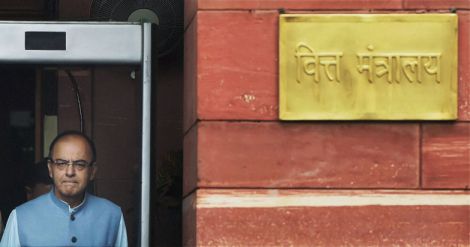The central government had recently dismissed 33 IRS officers for fraud as well as dereliction of duties. Out of these, seven were ‘A’ group officers and three were IT commissioners. In addition, six ‘A’ Group officers and 72 officers were dismissed. This is perhaps the first time that the Finance Ministry is taking action against so many officers at one go. It is believed that the actions were taken as per Fundamental Rules 56 (J).
As per the rule, those above 55 years and having 25 years of service can be terminated from service with three months notice if it may be proved that they are not efficient or had committed fraud. Conversely, officers can terminate their service to the government under 56 (K) with three months notice. Action as per 56 (J) would be taken as per each year's confidential report.
While the exercise is welcome if it is aimed at increasing efficiency, such laws are often taken arbitrarily in order to satisfy the whims of higher officials. The government has clarified that the moves are aimed at making governance transparent and efficient.
In 1984, the chair of the Income Tax department dismissed many people he did not like by invoking 56 (J). V.P. Singh, who was the Finance minister, acted like a puppet in the hands of the chair and approved the move. Some of the efficient staff in the department were dismissed thus and others who did not come under the purview of the law were either transferred or cornered using other rules. Many of those who were dismissed received favourable verdicts from the law because actions of the chair were not backed by evidence. However, when the favourable verdict came, many people had crossed the official age to be in service, but were served with benefits with retrospective effect. The example would suffice to prove that 56 (J) has a danger associated with it.
Those in power can misuse the law to corner efficient junior officials who do not toe their line. They can also use the law to berate junior officials. As per Civil Services rules, there are 10 types of punishment moves and compulsory retirement comes eighth. The ninth is removal and the tenth is termination. Normally, compulsory retirement is exercised when there is no evidence against officials and they often do not stand scrutiny in courts.
The government can make officials toe its line using the law. The same government that could not move a finger against Vijay Mallya is now taking cudgels against junior officials. While there are some officials who were hand-in-glove with Mallya, there are many who do not sympathise with him.
While the move can be considered as one to enhance efficiency, it could also affect the morale of officials who are sincere. The PR is a weapon of the coward because it can be used to destroy the career of a person. When a person is accused, public sentiment is built against the person even if he or she is innocent. When the government tries to use these rules to implement its agenda, it sets a dangerous precedent. Politically-motivated officials are a big threat and they could use their respective departments for their own good.
The central government had recently dismissed 33 IRS officers for fraud as well as dereliction of duties. Out of these, seven were ‘A’ group officers and three were IT commissioners. In addition, six ‘A’ Group officers and 72 officers were dismissed. This is perhaps the first time that the Finance Ministry is taking action against so many officers at one go. It is believed that the actions were taken as per Fundamental Rules 56 (J).
As per the rule, those above 55 years and having 25 years of service can be terminated from service with three months notice if it may be proved that they are not efficient or had committed fraud. Conversely, officers can terminate their service to the government under 56 (K) with three months notice. Action as per 56 (J) would be taken as per each year's confidential report.
While the exercise is welcome if it is aimed at increasing efficiency, such laws are often taken arbitrarily in order to satisfy the whims of higher officials. The government has clarified that the moves are aimed at making governance transparent and efficient.
In 1984, the chair of the Income Tax department dismissed many people he did not like by invoking 56 (J). V.P. Singh, who was the Finance minister, acted like a puppet in the hands of the chair and approved the move. Some of the efficient staff in the department were dismissed thus and others who did not come under the purview of the law were either transferred or cornered using other rules. Many of those who were dismissed received favourable verdicts from the law because actions of the chair were not backed by evidence. However, when the favourable verdict came, many people had crossed the official age to be in service, but were served with benefits with retrospective effect. The example would suffice to prove that 56 (J) has a danger associated with it.
Those in power can misuse the law to corner efficient junior officials who do not toe their line. They can also use the law to berate junior officials. As per Civil Services rules, there are 10 types of punishment moves and compulsory retirement comes eighth. The ninth is removal and the tenth is termination. Normally, compulsory retirement is exercised when there is no evidence against officials and they often do not stand scrutiny in courts.
The government can make officials toe its line using the law. The same government that could not move a finger against Vijay Mallya is now taking cudgels against junior officials. While there are some officials who were hand-in-glove with Mallya, there are many who do not sympathise with him.
While the move can be considered as one to enhance efficiency, it could also affect the morale of officials who are sincere. The PR is a weapon of the coward because it can be used to destroy the career of a person. When a person is accused, public sentiment is built against the person even if he or she is innocent. When the government tries to use these rules to implement its agenda, it sets a dangerous precedent. Politically-motivated officials are a big threat and they could use their respective departments for their own good.
(The author is a former chief customs commissioner. The views expressed are personal.)

























